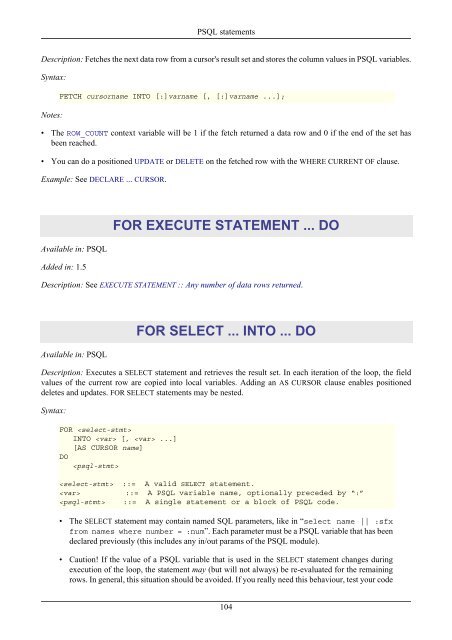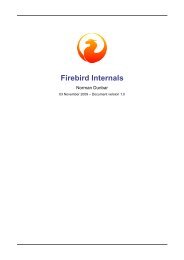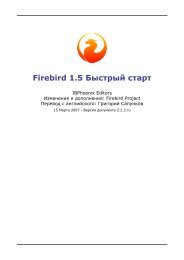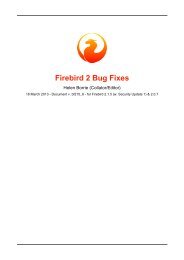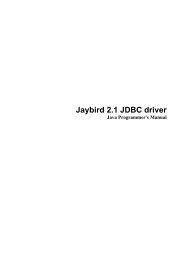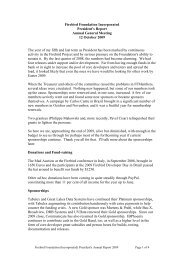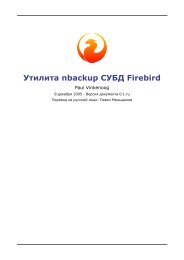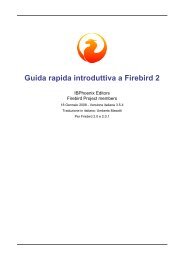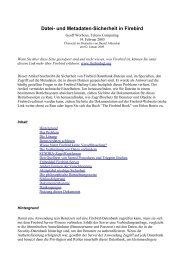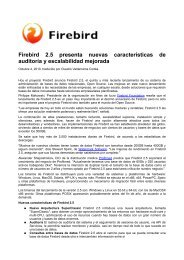Firebird 2.1 Language Reference Update
Firebird 2.1 Language Reference Update
Firebird 2.1 Language Reference Update
Create successful ePaper yourself
Turn your PDF publications into a flip-book with our unique Google optimized e-Paper software.
PSQL statements<br />
Description: Fetches the next data row from a cursor's result set and stores the column values in PSQL variables.<br />
Syntax:<br />
Notes:<br />
FETCH cursorname INTO [:]varname [, [:]varname ...];<br />
• The ROW_COUNT context variable will be 1 if the fetch returned a data row and 0 if the end of the set has<br />
been reached.<br />
• You can do a positioned UPDATE or DELETE on the fetched row with the WHERE CURRENT OF clause.<br />
Example: See DECLARE ... CURSOR.<br />
Available in: PSQL<br />
Added in: 1.5<br />
FOR EXECUTE STATEMENT ... DO<br />
Description: See EXECUTE STATEMENT :: Any number of data rows returned.<br />
Available in: PSQL<br />
FOR SELECT ... INTO ... DO<br />
Description: Executes a SELECT statement and retrieves the result set. In each iteration of the loop, the field<br />
values of the current row are copied into local variables. Adding an AS CURSOR clause enables positioned<br />
deletes and updates. FOR SELECT statements may be nested.<br />
Syntax:<br />
FOR <br />
INTO [, ...]<br />
[AS CURSOR name]<br />
DO<br />
<br />
::= A valid SELECT statement.<br />
::= A PSQL variable name, optionally preceded by “:”<br />
::= A single statement or a block of PSQL code.<br />
• The SELECT statement may contain named SQL parameters, like in “select name || :sfx<br />
from names where number = :num”. Each parameter must be a PSQL variable that has been<br />
declared previously (this includes any in/out params of the PSQL module).<br />
• Caution! If the value of a PSQL variable that is used in the SELECT statement changes during<br />
execution of the loop, the statement may (but will not always) be re-evaluated for the remaining<br />
rows. In general, this situation should be avoided. If you really need this behaviour, test your code<br />
104


